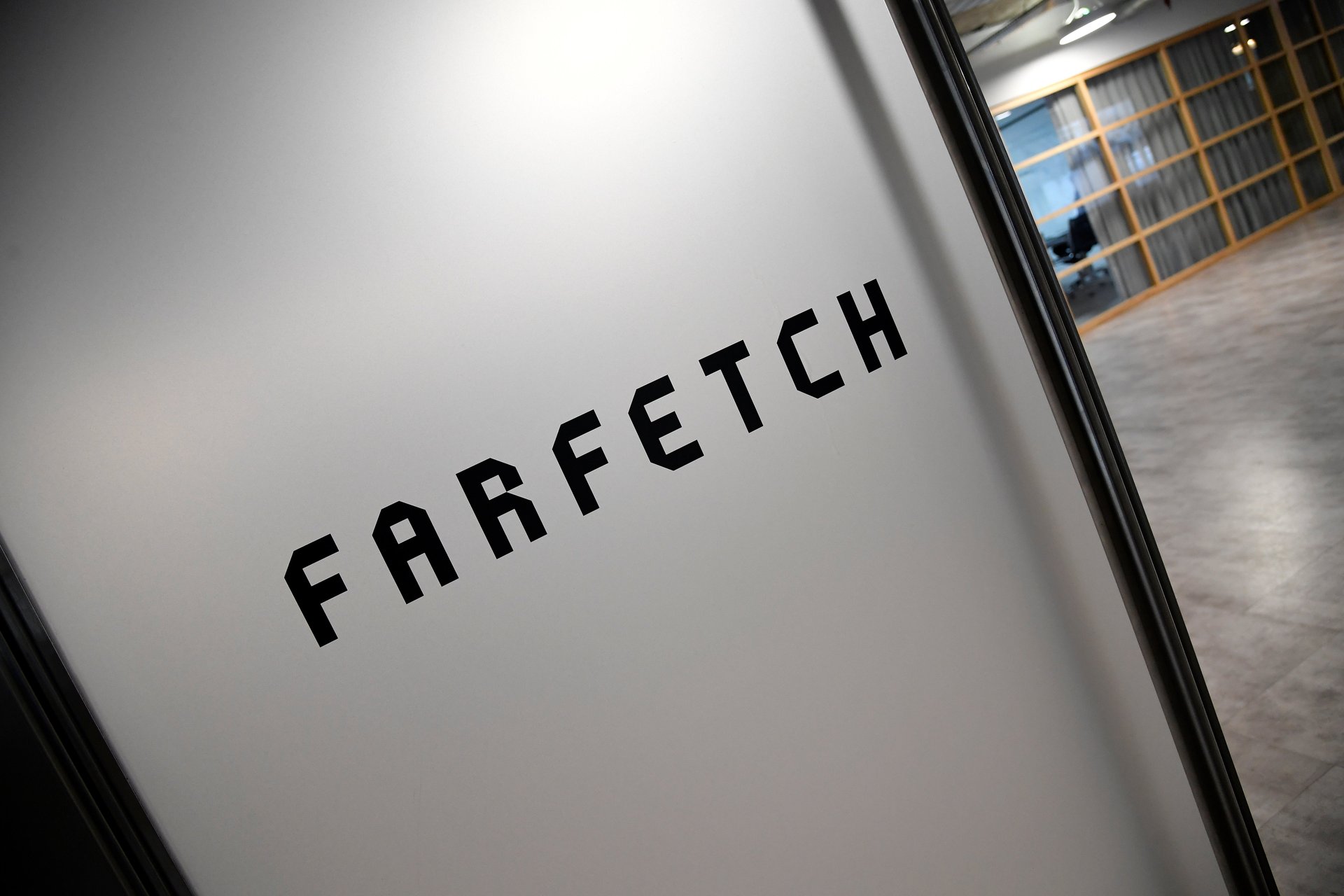Farfetch’s streetwear push may be too far-fetched for investors
Farfetch (FTCH), the luxury online fashion retailer that made a glitzy New York Stock Exchange debut in 2018, saw its shares fall 40% after-hours on Aug. 8, following news that it had acquired New Guards Group (NGG) in a deal valued at $675 million. NGG is the exclusive license-holder for high-end streetwear brands like Off-White, Palm Angels, and Heron Preston.


Farfetch (FTCH), the luxury online fashion retailer that made a glitzy New York Stock Exchange debut in 2018, saw its shares fall 40% after-hours on Aug. 8, following news that it had acquired New Guards Group (NGG) in a deal valued at $675 million. NGG is the exclusive license-holder for high-end streetwear brands like Off-White, Palm Angels, and Heron Preston.
Back in September 2018, Farfetch—which connects shoppers to 700-plus high-end labels, and ships to nearly 200 countries—was valued at over $8 billion. Its blockbuster debut lent credence to the idea that investors are interested in the intersection of e-commerce and luxury fashion. The company has 2.3 million customers on its marketplace, and its relationship with elite brands makes it a power player in luxury goods, a space Bain and Co. estimates will grow to at least €80 billion ($90.9 billion) by 2025, from €26 billion ($30 billion) in 2018. Farfetch and its competitors—sites like Yoox, Net-à-Porter and Matchesfashion.com—have established partnerships with houses like Chanel and Gucci, the type of luxury brands that continue to eschew Amazon.
So why the stock slump? It might have a little something to do with Farfetch’s financials. The company has yet to turn a profit, and has faced mounting losses since its IPO (before yesterday’s stumble, shares were down 36% from its debut). Alongside the NGG announcement, Farfetch reported a second-quarter loss of $90 million, notably larger than its $18 million loss during the same quarter in 2018.
It’s less clear whether investors are dubious about New Guards Group as an acquisition. Luxury streetwear, in which the Milan-based NGG is a significant player, has already proven more than a passing trend. Brands like Off-White and Supreme dominate mainstream fashion; Off-White even beat Gucci and Balenciaga in global fashion search platform Lyst’s 2018 ranking of the world’s most popular brands. Traditional luxury labels, meanwhile, are also embracing streetwear: Louis Vuitton menswear lead Virgil Abloh and Dior menswear lead Kim Jones both have roots in the sensibility. Luxury fashion houses from Balmain to Givenchy have embraced the street-inspired aesthetic, selling high-end sweatshirts, fanny packs, and chunky sneakers alongside their traditional couture fare. As Highsnobiety noted: “The big houses still do tailoring, of course—rich old guys always want suits—but they’re styling it out to make it look street, young, and now.”
Farfetch’s NGG deal, which CEO Jose Neves framed as an investment in “brands of the future,” comes nearly a year after its $250 million acquisition of Stadium Goods. Stadium Goods is a consignment reseller of rare and limited-edition sneakers and streetwear. “[Sneakers] are growing faster than other categories and we see the same on Farfetch,” Neves told Business of Fashion after that acquisition. “We now have the strongest secondary market brand, in our view.”